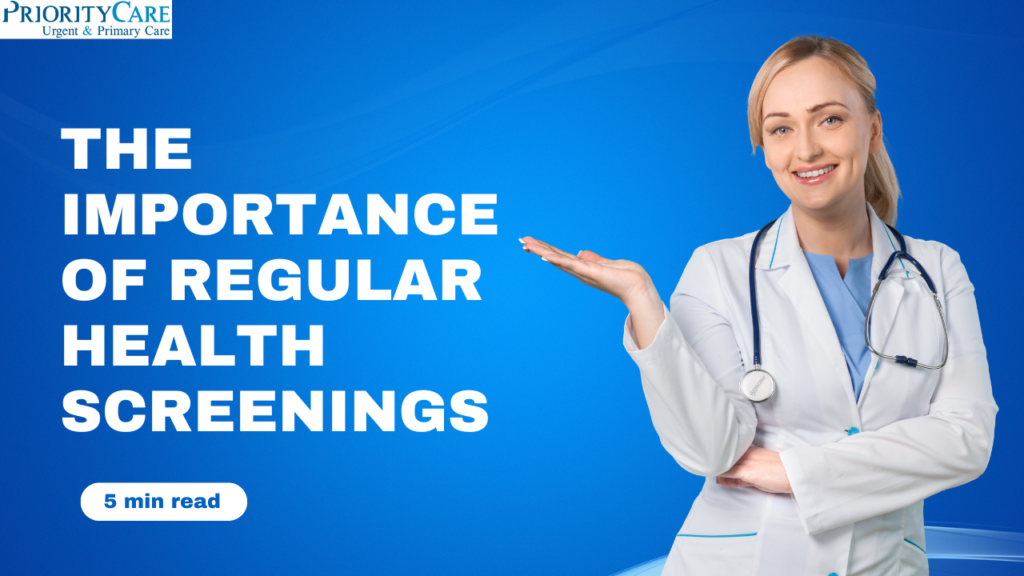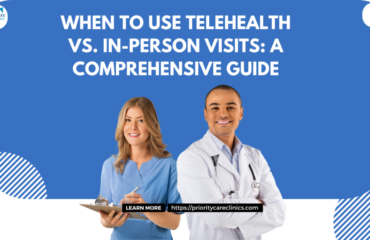
You know that feeling of dread when you have to go for a check-up? The anxiety that builds up as you wait for the results? It’s normal to feel that way, but avoiding health screenings altogether is not the answer. Regular check-ups are crucial for maintaining your well-being and detecting potential issues early on, before they become more serious and difficult to treat.
Why Regular Health Screenings Matter
Preventive healthcare is the key to a long, healthy life. By getting regular screenings, you’re giving yourself the best chance at catching and addressing any health concerns before they escalate. Here are some compelling reasons why you should make health screenings a priority:
- Early Detection Saves Lives: Many diseases, like cancer, heart disease, and diabetes, are more treatable when caught in their early stages. Regular screenings can identify these conditions before you even experience symptoms, increasing your chances of a successful recovery.
- Prevent Chronic Conditions: Screenings can also help detect risk factors for chronic diseases, such as high blood pressure or high cholesterol. By identifying these risks early, you can make lifestyle changes or seek treatment to prevent the development of more serious conditions.
- Peace of Mind: Regular check-ups can provide reassurance that you’re in good health or alert you to potential issues that need attention. This knowledge can help alleviate unnecessary stress and anxiety.
- Save Money: While preventive care may seem like an added expense, it can actually save you money in the long run. Early treatment is often less costly than addressing a condition that has progressed significantly.
- Establish Baselines: Routine screenings help establish personal baselines for various health markers, such as cholesterol levels or blood pressure. These baselines make it easier to detect any concerning changes over time.
What to Expect
Depending on your age, gender, and family history, your healthcare provider may recommend specific screenings. Here are some common examples:
- Physical Exam: A comprehensive physical examination can assess your overall health and identify any potential concerns.
- Blood Tests: Blood tests can check for a variety of conditions, including diabetes, cholesterol levels, and certain types of cancer.
- Cancer Screenings: Mammograms, colonoscopies, and other screenings can detect breast, colon, and other cancers in their early stages.
- Imaging Tests: X-rays, CT scans, and MRIs can provide detailed images of your internal organs and structures, helping to identify potential issues.
- Lifestyle Assessments: Your healthcare provider may also evaluate your diet, exercise habits, and other lifestyle factors that can impact your health.
Remember, these screenings are not designed to be a one-time event. Regular follow-ups are essential for monitoring your health over time and making any necessary adjustments to your care plan.
A Proactive Approach to Your Well-being
By prioritizing regular health screenings, you’re taking a proactive approach to your well-being. You’re giving yourself the best chance at early detection and intervention, which can significantly improve your chances of a positive outcome.
Don’t wait until it’s too late – schedule your next check-up today at one of our Baltimore-area clinics. Your future self will thank you for making your health a top priority.
The Payoff: A Healthier, Happier You
Investing in your health through regular screenings is an investment in your overall quality of life. By staying on top of potential issues and addressing them promptly, you’ll not only increase your chances of a longer lifespan but also improve your day-to-day well-being.
Imagine feeling more energized, less stressed, and better equipped to tackle life’s challenges. That’s the power of preventive healthcare. So, take that first step towards a healthier, happier you – book your next screening appointment today.
For residents in Maryland, Priority Care Clinics offer convenient access to health screenings and preventive care. Our clinics, located at:
– 3500 Boston St, Baltimore, MD 21224. Directions
– 3720 Washington Blvd #100, Halethorpe, MD 21227. Directions
– 550 Ritchie Hwy Suite K, Severna Park, MD 21146. Directions
– 5282 Campbell Blvd Suite I, Nottingham, MD 21236. Directions
Frequently Asked Questions
Q: How often should I get health screenings?
A: The recommended frequency of health screenings varies depending on your age, gender, and individual risk factors. In general, annual check-ups are recommended for most adults. However, your healthcare provider may suggest more frequent screenings based on your personal health history and circumstances.
Q: What if I’m feeling perfectly healthy? Do I still need screenings?
A: Yes, regular health screenings are important even if you feel perfectly fine. Many health conditions, such as high blood pressure or certain types of cancer, can develop without noticeable symptoms in the early stages. Screenings can detect these issues before they progress and become more difficult to treat.
Q: Will my health insurance cover the cost of screenings?
A: Many health insurance plans cover the cost of preventive screenings, such as routine check-ups, cancer screenings, and certain lab tests. However, coverage varies by plan, so it’s always a good idea to check with your insurance provider to understand what’s covered and any potential out-of-pocket costs.
Q: What should I do if a screening reveals a potential health issue?
A: If a screening test indicates a potential health concern, your healthcare provider will likely recommend additional testing or monitoring to further evaluate the issue. Don’t panic – early detection is the goal of screenings, and catching potential problems early can significantly improve treatment outcomes.
Q: Can I request specific screenings if I’m concerned about a particular health condition?
A: Absolutely. If you have a family history or personal concerns about a specific health condition, discuss your concerns with your healthcare provider. They can recommend appropriate screenings or testing based on your individual risk factors and medical history.
Remember, regular health screenings are an essential part of maintaining your overall well-being. By staying proactive and prioritizing preventive care, you’re giving yourself the best chance at a long, healthy life. Visit Priority Care Clinics today to book your appointment and take the first step towards better health!



